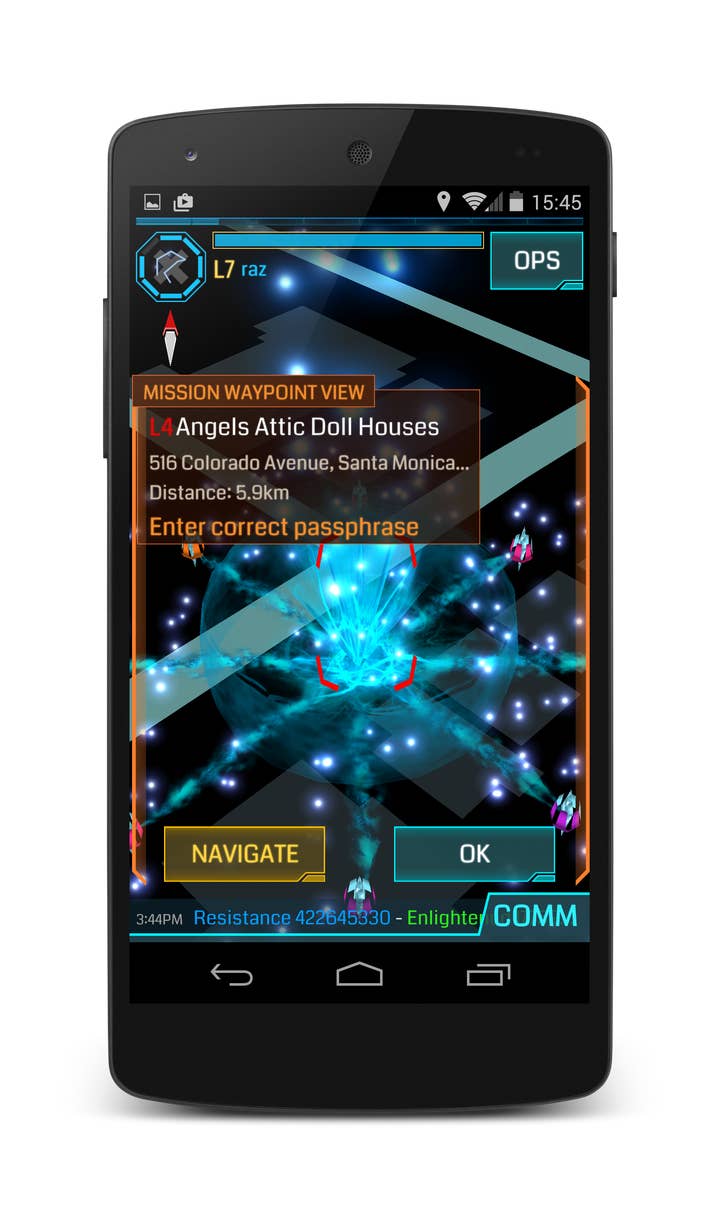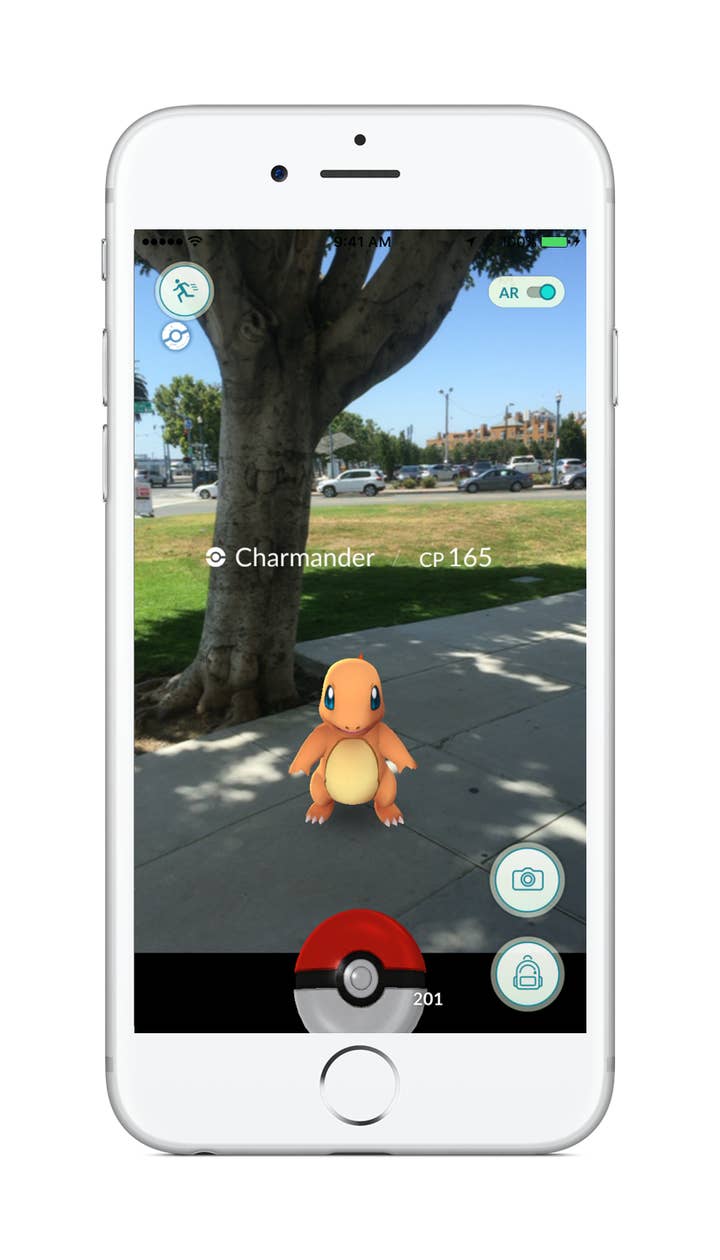Life after Pokémon Go: Niantic's next evolution
CMO Mike Quigley discusses the future of Go, working with developers, new business models and doubling the size of the studio
Winter is coming.
It's a problem most games developers don't have to worry about. In fact, the cold weather tends to help game sales. Yet for Niantic, the creators of this year's biggest gaming phenomenon - Pokémon Go - it's a challenge.
The mania of the summer, when the mobile title took over the world, may have subsided, but Pokémon Go remains widely played. It still sits atop of the iPhone grossing charts, where it has been since it debuted, and last week - when Niantic ran a series of activities around Halloween - the game saw its global daily users increase by 13.2 percent over the prior week (in the US, where Halloween is a big institution, that increase was 19.2 percent).
The real world MMO remains a big deal and is generating significant sums of money. But it's also a game that has benefitted from its summer release window - the challenge now will be getting players out and about during this period of colds and overcoats.
"We'll monitor this stuff, and come this time next year, we might start to think about doing things for the likes of Germany, the UK and North America, who are going through their winter," says Mike Quigley, the chief marketing officer at Niantic.
"A lot of people give us credit for the summer release timing, but we also saw strong pick-ups in places like Australia and Brazil, when it was winter for them. There's a lot of seasonal dynamics we need to consider. It's a variable that most developers don't need to worry about. Hopefully we can learn and figure out ways to keep consumers engaged. Maybe there will be other spikes in corresponding glove and hat and coat sales."
The fact that Niantic is planning for next year is further evidence that Pokémon Go is not about to just disappear. The game almost erupted overnight when it launched at the start of July, quickly hitting 500m installs. In August, one prominent journalist told me that 90 percent of his site's traffic was coming from stories and guides about the game, while it even became a regular feature on TV shows, mainstream websites and had garnered plenty of celebrity fans.
The title has transformed Niantic, a studio that began as an 'autonomous unit' within Google - basically a separately run business within a bigger structure. It span out as an independent developer last year, and immediately attracted big investors in the form of Google (again), Nintendo and The Pokémon Company.
We expect the team to double in size over the next 12 months."
Mike Quigley, Niantic
"This gives us the best of both worlds," says Quigley. "We still have the full support of Google, plus now Nintendo and The Pokémon Company, and with the independence that we wanted so that we can move quickly. We have a lot of flexibility."
One year after that investment, the success of Pokémon Go has put Niantic in an extremely strong financial position. Yet the studio insists it's going to be careful when it comes to spending money.
"We expect the team to double in size over the course of the next year," Quigley says. "But that's us going from about 70 right now, to being within the 140 to 150 range by the middle of next year. We want to be mindful of cost and how we scale. We are growing but doing so responsibly and carefully, so that we don't get ahead of ourselves."
He continues: "Most people don't know this, but this is our CEO John Hanke's fourth start-up. With that experience, he is very, very thoughtful about how, when and where we invest. We are brutal in terms about our prioritisation of where we are going to add funds, staff and resources, and also identify places where we are going to hold-off and see how the business is doing. Pokémon Go turned out to be beyond our wildest expectations, but if it had just gone mediocre, we'd still would have been ok. It is a marathon, not a sprint. We have the patience to take that long view.
"Take Ingress. That is a game where we didn't even introduce some of our most popular features until Year Two. That's not code to say that major features for Pokémon Go are not going to come until Year Two, we have a lot of big updates that will be coming imminently. But staying steady and stable, and just taking it week-to-week, month-to-month, has put us in a unique position."

It didn't take long for Quigley to mention Ingress. Pokémon Go may be the big sexy thing in Niantic's product portfolio, but Ingress is what it was all built on. The Pokémon Company's CEO Tsunekazu Ishihara was a high-level Ingress player, as was his wife, which was why he reached out to Niantic in the first place.
Ingress - which is also a real world experience - is now into its fourth year and has just passed 20m installs.
It's also, along with sales of Nintendo's 3DS products, benefitted from Pokémon Go's success - proving the old adage that a rising tide lifts all boats.
"As people are enjoying Pokémon Go, some of them have also discovered Ingress," acknowledges Quigley. "You know, relative to Pokémon Go it is a little bit more targeted towards a core gamer, because there are other types of gameplay in there that we've added over the four years, so it's a little further along. We are proud of Ingress and we will continue to invest in it."
Ingress has been a great learning tool for Pokémon Go, Quigley says. Although the firm was shocked by the sudden popularity of the game, much of how the players behaved was in-keeping with how Ingress users acted.

Ingress also taught Niantic about anti-cheat tools, customer support and how to promote its product within the community.
Of course the sheer scale of Pokémon Go created its own unique issues, particularly as millions of people began wandering around the streets staring at their phones. Reports of Pokémon Go accidents were widespread, as were complaints from museums and places of worship that were suddenly inundated with Pokémon Go players trying to catch creatures or battle in gyms.
"This type of experience, where you're going out and exploring your cities, at this scale, yeah, those sort of things will happen," Quigley concedes. "It's been a learning experience for our operations team. This has been a top priority for us. When there's a location that's particularly sensitive, we try to address it as quickly as we can.
"As for player safety, that's a pretty big point for us. We're constantly monitoring it."
Not everyone is complaining about the placement of PokéStops and Pokémon Gyms, however. In fact, physical retailers have called on Niantic to put their stores into its game, which has presented the developer with an interesting alternative business model.
"It's nice to partner with retailers for Pokémon Go as a secondary revenue stream. It means we don't have to make hard decisions around whether we want to put advertising in the game."
Mike Quigley, Niantic
Quigley says: "I remember in the early days of Ingress, we made a conscious decision not to light up in-app purchase, which is the primary revenue stream for every free-to-play game, right? We decided not to do that because we wanted to explore some other secondary and tertiary revenue streams that were unique to us and the real world experiences that we create.
"We had a lot of learnings with a lot of partners during Ingress, including some that have stuck with us. SoftBank Mobile, in Japan, was an early partner with us on Ingress and they came over and became a partner on Pokemon Go. McDonalds in Japan is a partner with us, Toho Cinema [also Japan] is another one, and we just announced the first in a series of deals outside of Japan. Globe Mobile in the Philippines, have had their locations integrated into Pokémon Go.
"It is nice to have a secondary revenue stream that is unique to us, so that we don't have to make hard decisions around whether we want to put advertising in the game, or other elements."
He continues: "It sounds kind of silly to say, but we don't focus on monetisation. It isn't a topic metric for us. We are pleased with our conversion rates with in-app purchases, and people can look at the charts and come to their own conclusions.
"From a classic game perspective, it is more like an MMO than anything else. We have a lot of different planned content releases and major new features. You've seen new features over the past couple of months once we caught our breath after the summer. You'll see more of that and hopefully we can keep people engaged, and if they want to spend money, then that's ok."
"We want other developers using our technology platform."
Mike Quigley, Niantic
The question for Niantic now is: where next? The firm will continue to support its two titles, but with its biggest game being based on an IP it doesn't own, surely that creates pressure to build something else it can call its own?
"Right now, we are taking a portfolio approach," Quigley says. "Granted, there are only two games in the portfolio right now. We've said for year that, we are looking to enable other IP holders and developers to create these types of experiences on our technology platform. We want other developers using our technology. Pokémon Go is the first example of that.
"There will be future games down the road, but nothing to show yet. That is still the long-term plan and from my learnings from Electronic Arts after 11 years there, it is nice to have a portfolio of games."
He concludes: "But we are still locked arm-in-arm with The Pokémon Company on Pokémon Go and working together for the foreseeable future. It's been a fantastic partnership.
"Now we have come out of the tidal wave of craziness that happened in the summer, and people look at the small things and some of the bigger things that we have launched, or will launch, hopefully that gives them confidence that we will continue to invest in Pokémon Go, and hopefully we can keep a lot of those people engaged. Some will lapse out, that's the nature of mobile free-to-play and we've all seen those curves. So if that happens, it wouldn't surprise us. But we are not really focused on that. We are focused on making it a great game, continuing to invest in it, and the consumers can decide."








